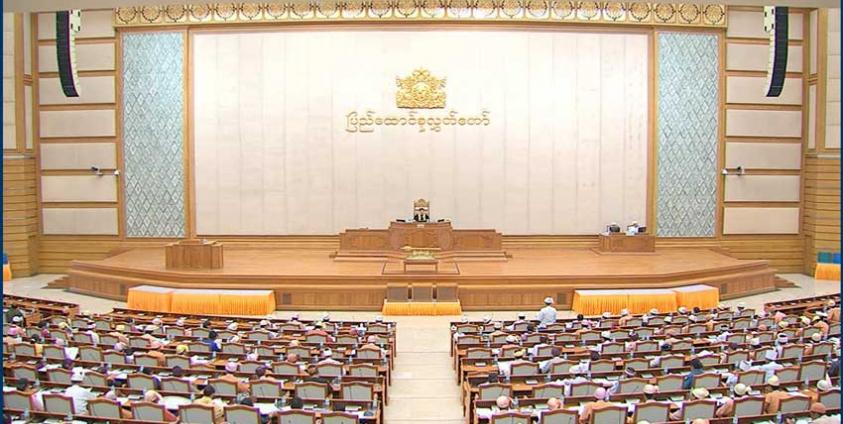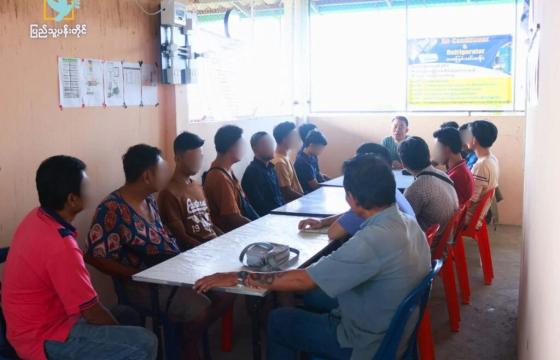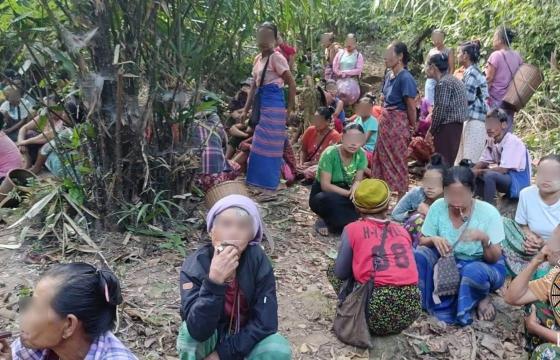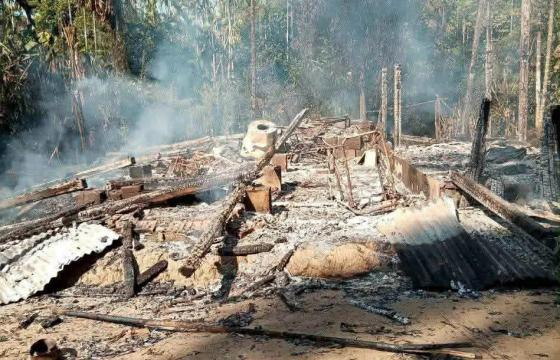The upcoming election will be held in August 2023, the State Administrative Council Chair and the Prime Minister, General Min Aung Hlaing, said that instead of the first past the post system, this election will use a proportional representation (PR) system.
Some politicians believe that despite the introduction of a PR system, the 2023 election will not result in a parliament that guarantees ethnic rights.
The Pao National Liberation League (PNLO) patron, Colonel Khun Oakka, suggested that any election held under the 2008 Constitution will not be able to secure ethnic rights.
Colonel Khun Oakka, remarked that the 2008 Constitution framework is just "...a kind of power sharing. If it is a form of power sharing, it will be at the level of sharing. A parliament that guarantees our ethnic rights will not happen."
According to the 2008 Constitution, 25 percent of the seats in a parliament are automatically given to military representatives.
Under this constitutional framework, critics have noted there is no reason for the public to have any interest in an election because there is no genuine opposition party.
U Phay Than,a former member of the Rakhine People's Assembly described the design to be nothing more than a political outlet for the military.
"The upcoming parliamentary debate is not politically supported by the people. Political recognition is weak. It is not free and fair. Because there are no major opposition parties the result will not be of interest to the people. We cannot expect that ethnic parties will get good results. Therefore, we believe there is no (electoral) legitimacy. This will not be a free and fair election. A one-sided election and the introduction of some kind of proportional representation system won't make the election free and fair, " he said.
He added, since the former National League for Democracy ( NLD), became the government based on the 2008 constitution, they too did not meet the democratic standard.
The parliamentary outcomes from the 2020 election gave way to the February 1, 2021 military coup which put in place the State Administrative Council structure -- neither outcome has resulted in the provision of ethnic rights.
Colonel Khun Oakka emphasized that when 25% of military personnel participate in the Hluttaw (parliament), the result is not democratic. Therefore, under the 2008 constitutional framework , there is no way to secure ethnic rights.
Colonel Khun Oakka said, "This is the (undemocratic) parliamentary outcome that has emerged in Burma. This has been the case during the Hluttaw under U Nu, the People's Hluttaw under U Nay Win, and the Union Hluttaw and State Hluttaws that appeared later under U Thein Sein. To put it all clearly, it cannot be said that this parliamentary system offers a democratic model. When 25 percent of the military is in the parliament it is a fundamental violation of democracy. Yes, there are still 75 percent of the people who were elected, but within these wins, the winning party (often the military) holds a significant presence or is dominant. So, for ethnic parties the ability to speak for ethnic issues has shrunk. It has shrunk quite a bit. Therefore, there is no reason to succeed by asking for a chance. There is no reason to get any rights under the constitutional structure that was made in 2008."







